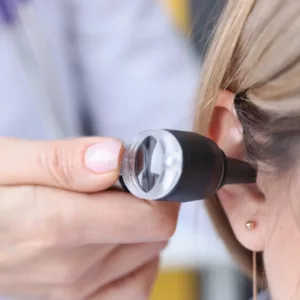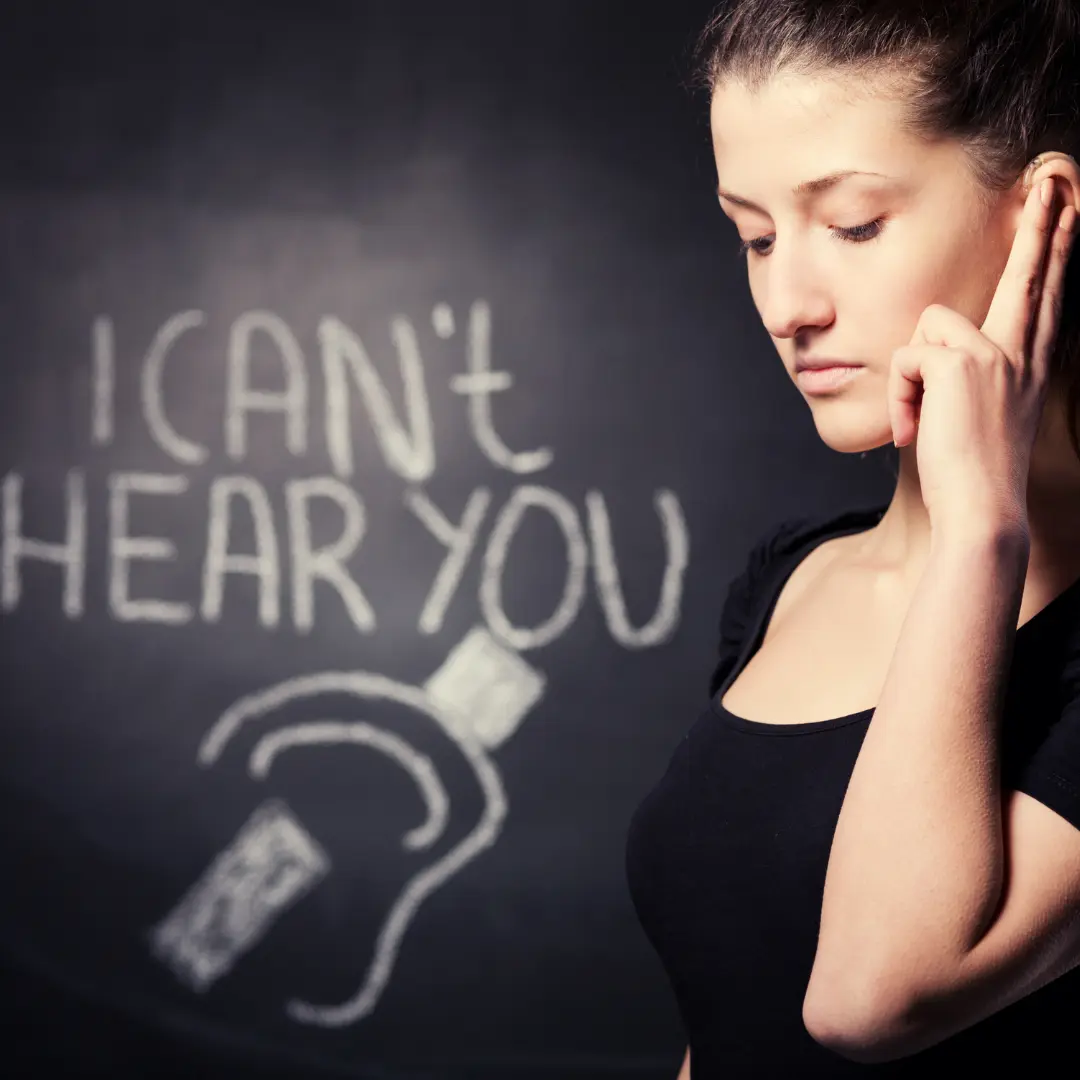Sudden Hearing Loss: What Are the Causes and Symptoms?
Sudden hearing loss hits fast, often blindsiding individuals by affecting one or both ears within just 72 hours. This condition ranges from mild to severe, emphasizing the importance of immediate medical attention. Quick action identifies the cause and increases the likelihood of regaining lost hearing. Symptoms include a rapid decrease in hearing ability, muffled sounds, dizziness, tinnitus, or a sense of fullness in the ear. If you spot these signs, promptly consulting a doctor or audiologist is crucial for your health.
Sudden sensorineural hearing loss (SSHL), also known as sudden deafness, might catch you off guard, typically manifesting in one ear. Many discover it upon waking or when they can’t hear during a phone call. Ignoring these symptoms as minor issues like allergies or earwax could delay essential treatment. Since SSHL is a medical emergency, early diagnosis and treatment significantly improve recovery chances. Though it can strike anyone, adults in their late 40s and early 50s are most commonly affected, highlighting the need for awareness and swift action.
What Causes Sudden Hearing Loss?
When it comes to sudden hearing loss, several factors can play a role. Let’s break down some of the most common causes:
Viral and Bacterial Infections
Viruses like the flu or measles and bacteria can attack our inner ear. This assault damages the cells that help us hear.
Inner Ear Disorders
Meniere’s disease is one such condition causing hearing fluctuations, tinnitus, and dizziness due to abnormal fluid pressure.
Physical Trauma
Injuries to the head can directly impact the ear’s internal structures, leading to sudden loss of hearing.
Ototoxic Medications
Some drugs, including certain antibiotics and chemotherapy agents, can harm the inner ear’s cells, affecting hearing.
Find out more about ototoxic medications.
Loud Noises
Exposure to explosive sounds or consistent loud noise can damage the inner ear’s hair cells, resulting in hearing loss.
Specific Causes of Sudden Hearing Loss in One Ear
Sudden hearing loss doesn’t always strike both ears. Sometimes, it targets just one. Here are reasons why this might happen:
- Meniere’s Disease: Primarily affects one ear with hearing loss, tinnitus, and vertigo symptoms.
- Middle Ear Infections: Infections on one side can cause fluid buildup and hearing loss in that ear.
- Otitis Media with Effusion: Fluid accumulation behind the eardrum, without infection, can muffle sounds in one ear.
- Vestibular Schwannoma: A benign tumor on the auditory nerve might press against it, leading to hearing issues in one ear.
- Perilymph Fistula: A tear in the inner ear allowing fluid to escape can affect hearing on one side.
- Barotrauma: Pressure changes from diving or flying can injure the inner ear, causing unilateral hearing loss.

Recognizing the Red Flags
Understanding the symptoms of sudden hearing loss in one ear is crucial for early intervention. Keep an eye out for these warning signs:
- A rapid decrease in hearing ability.
- Sounds become muffled or distant.
- Experiencing vertigo or dizziness.
- Tinnitus, or ringing in the ears.
- A sensation of fullness or pressure in the ear.
If you notice any of these symptoms, it’s essential to consult a healthcare professional promptly. Early detection and treatment can significantly improve the chances of recovery and reduce the impact of sudden hearing loss on your life.
What Should You Do About Sudden Hearing Loss?
Sudden hearing loss can be alarming, but knowing the right steps can make all the difference. Prompt action is crucial whether it’s sudden hearing loss in one ear or both. Here’s how you can address this urgent health concern:
Immediate Steps to Take
- Seek Medical Attention Quickly: Time is of the essence. Early treatment can greatly influence your recovery, so contact a healthcare provider immediately.
- Consult an ENT Specialist or Audiologist: These professionals diagnose and treat hearing issues. An audiologist can conduct initial tests to gauge the extent of your hearing loss.
- Be Ready to Discuss Your Health History: Expect to answer questions about recent illnesses, noise exposure, and medications. This information helps pinpoint the cause of your hearing loss.
- Describe Your Symptoms Clearly: Share details about when the hearing loss started, which ear is affected, and any other symptoms like tinnitus.
- Avoid Ear Interference: Until you see a doctor, don’t insert anything into your ears.
- Limit Noise Exposure: Avoid loud noises by protecting your ears from further damage.
Diagnosing Sudden Hearing Loss
To diagnose sudden hearing loss, doctors first eliminate the possibility of conductive hearing loss. They then perform pure tone audiometry, identifying sensorineural hearing loss by measuring your hearing across different frequencies. A significant drop in hearing over a short period is a key indicator of sudden hearing loss. Additional tests, including blood work, MRI scans, and balance assessments, may follow to uncover the underlying cause.
Treatment Options to Consider
Depending on the cause, treatment for sudden hearing loss may include:
- Steroids: These can reduce inner ear inflammation.
- Hyperbaric Oxygen Therapy: This treatment increases oxygen delivery to the ear, aiding recovery.
- Hearing Aids: For permanent hearing loss, hearing aids can improve your ability to hear.

Lowering Your Risks of Sudden Hearing Loss
While you can’t predict sudden hearing loss, certain preventive measures can reduce your risk:
- Ear Protection: Use earplugs in loud environments and limit noise exposure above 85 dB. Choose noise-canceling headphones for everyday use.
- Mindful Listening: Keep the volume down and take regular breaks when using headphones.
- Ear Care in Activities: Wear protection during loud events or activities.
Understand more ways to protect your hearing.
Health Management
Managing other health issues can keep your ears healthier.
- Treat Ear Infections Early: Addressing infections promptly prevents complications.
- Manage Chronic Conditions: Keep health conditions like diabetes or high blood pressure under control.
- Medication Awareness: Discuss the potential ototoxic effects of medications with your doctor.
- Early Detection: Schedule hearing tests regularly for early identification and management of any changes in your hearing.
- Communicate with Your Audiologist: Share any concerns or risk factors regarding sudden hearing loss.
By taking these steps, you can address sudden hearing loss effectively and maintain your hearing health.

Be Proactive About Your Hearing Health
Facing sudden hearing loss, or sudden hearing loss in one ear, can be daunting. Yet, understanding what causes this condition and recognizing its symptoms empowers you to act swiftly. Remember, the quicker you seek help, the better your chances of recovery. From viral infections to loud noise exposure, the culprits behind sudden hearing loss vary, but the response should always be the same: prompt action. If you’re experiencing any symptoms of sudden hearing loss, don’t wait. Contacting a specialist at the earliest sign can significantly affect your outcome.
American Hearing + Audiology is committed to providing comprehensive hearing evaluations and personalized care to prevent sudden problems. Our team is ready to support you with the latest in diagnostic and treatment options.
Contact American Hearing + Audiology to navigate your hearing health journey with compassion and expertise. Schedule your hearing test today and take the first step towards better hearing and quality of life.






